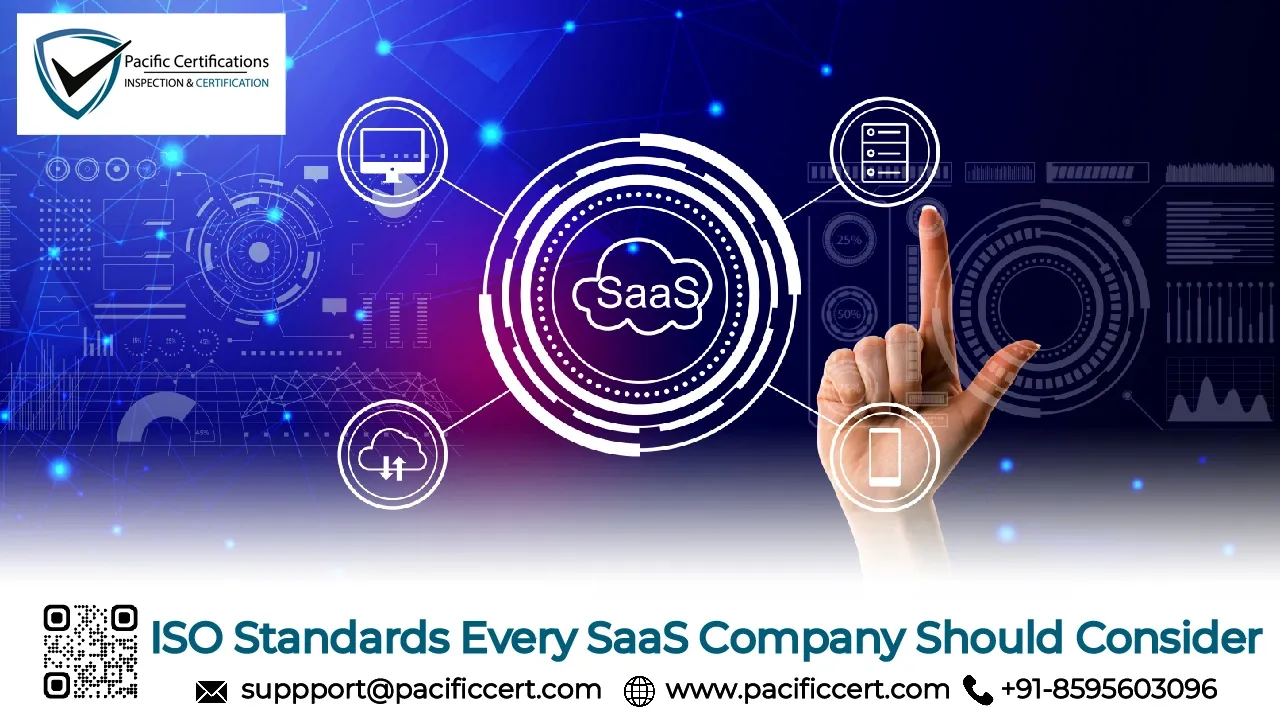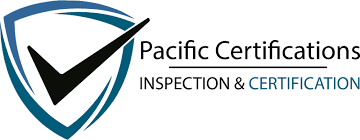Top ISO Standards Every SaaS Company Should Consider in 2025

Introduction
Software as a Service (SaaS) companies are transforming how businesses are operating in today’s fast paced digital landscape. They are offering scalable, accessible, and cost effective solutions across industries. But with this flexibility comes significant responsibility. From managing customer data securely to ensuring service availability and compliance, SaaS companies are always facing a lot of expectations. One powerful way to meet these challenges and build trust is by adopting relevant ISO (International Organization for Standardization) standards.
ISO certifications serve as globally recognized benchmarks for quality, security, risk management, and service efficiency. aligning with these standards isn’t just a compliance task For SaaS companies, it’s a great advantage that builds credibility, streamlines operations, and leads doors to new ways.
In this blog, we’ll explore the most important ISO standards for SaaS providers and why each is crucial to business success.
What is a SaaS Company?
A SaaS (Software as a Service) company delivers software applications via the cloud on a subscription basis. users can access these applications through a web browser or API over the internet Instead of purchasing and installing software on individual computers
Google Workspace, Salesforce, Dropbox, and Slack are common examples. SaaS companies manage the infrastructure, security, software updates, and data storage, allowing users to focus on usage rather than maintenance.
What are the Key characteristics of SaaS companies?
1. It has a Cloud based delivery model and it has recurring revenue through subscriptions.
2. It has Centralized updates and patching system and Is Scalable to meet customer demand
3. The Data of such companies is often held in multi tenant environments
Due to their nature being cloud native and user data responsibilities, SaaS businesses must uphold stringent quality, security, and privacy standard which is where ISO certifications play a crucial role.
Why ISO Standards Matter much for SaaS companies?
SaaS businesses are depended a lot on customer’s trust, data security, consistent uptime, and efficient processes. Adopting ISO standards provides:
1. The certification provides a Competitive advantage: it helps saas companies to Stand out in a crowded market with recognized certifications. It also helps in the standardisation of the businesses by actively recognising and reducing operational , technical, and data related risks
2. Compliance readiness: helps companies in Meeting regulatory requirements (GDPR, HIPAA, etc.) with globally accepted frameworks.
3. Customer assurance and increased Operational efficiency: standardisation helps toDemonstrate commitment to quality, reliability, and security and it also Implements process driven approaches for continual improvement.
What are some of the Key ISO Standards for SaaS Companies?
ISO/IEC 27001:2022 – Information Security Management System (ISMS)
ISO/IEC 27001 is the world's best-known standard for information security management systems (ISMS). It defines requirements an ISMS must meet.
The ISO/IEC 27001 standard provides companies of any size and from all sectors of activity with guidance for establishing, implementing, maintaining and continually improving an information security management system.
Conformity with ISO/IEC 27001 means that an organization or business has put in place a system to manage risks related to the security of data owned or handled by the company, and that this system respects all the best practices and principles enshrined in this International Standard.
ISO/IEC 27017 – Cloud Security Controls
ISO/IEC 27017:2015 gives guidelines for information security controls applicable to the provision and use of cloud services by providing:
- additional implementation guidance for relevant controls specified in ISO/IEC 27002;
- additional controls with implementation guidance that specifically relate to cloud services.
This Recommendation | International Standard provides controls and implementation guidance for both cloud service providers and cloud service customers.
ISO/IEC 27018 – Protection of Personally Identifiable Information (PII)
- Addresses data privacy issues specific to cloud service providers
- Offers guidance on processing and storing PII securely
- Enhances customer assurance for services handling sensitive data
- Supports compliance with global data protection laws
- Covers deletion policies, breach notifications, and access management
ISO 9001:2015 – Quality Management System
ISO 9001 is a globally recognized standard for quality management. It helps organizations of all sizes and sectors to improve their performance, meet customer expectations and demonstrate their commitment to quality. Its requirements define how to establish, implement, maintain, and continually improve a quality management system (QMS).
Implementing ISO 9001 means your organization has put in place effective processes and trained staff to deliver flawless products or services time after time.
ISO 22301:2019 – Business Continuity Management
ISO 22301 is the international standard for Business Continuity Management Systems (BCMS). It provides a framework for organizations to plan, establish, implement, operate, monitor, review, maintain, and continually improve a documented management system to protect against, reduce the likelihood of, and ensure recovery from disruptive incidents.
ISO/IEC 20000-1:2018 – IT Service Management (ITSM)
This ISO standard provides a structured approach for designing, delivering, and improving IT services. For SaaS companies, it ensures alignment between IT systems and customer expectations. Implementing ISO/IEC 20000-1 helps minimize service disruptions, streamline support operations, and maintain consistent service quality throughout software updates and new feature deployments. It's especially useful for enhancing SLAs and customer satisfaction.
ISO 31000 – Risk Management
ISO 31000 is an international standard that provides principles and guidelines for risk management. It outlines a comprehensive approach to identifying, analyzing, evaluating, treating, monitoring and communicating risks across an organization. By implementing ISO 31000, companies can improve stakeholder confidence, minimize the impact of operational failures, and make better-informed decisions that support business continuity and growth.
ISO/IEC 27032 – Cybersecurity Guidelines
1. Enhances cybersecurity posture by identifying vulnerabilities and Focuses on application, internet, and network security controls
2. Provides guidance on managing cyber incidents and responses and Supports cybersecurity awareness training for staff
3. Helps SaaS providers counteract growing threats in online environments
ISO 27701 – Privacy Information Management
ISO/IEC 27701 is an international standard that specifies requirements and provides guidance for establishing, implementing, maintaining and continuously improving a privacy information management system (PIMS). It extends ISO/IEC 27001 to specifically address privacy and the protection of personally identifiable information (PII), making it highly relevant for organisations acting as PII controllers or processors.
ISO 14001 – Environmental Management System
As environmental sustainability becomes a core concern for tech companies, ISO 14001 provides SaaS businesses with a framework to identify and manage their environmental impacts. It covers energy use, electronic waste disposal, carbon emissions, and regulatory compliance. By adopting this standard, SaaS companies not only reduce their ecological footprint but also position themselves as responsible, future-forward organizations aligned with green tech initiatives.
How toChoose the Right ISO Standards for Your SaaS Business?
Not every ISO standard applies equally to every SaaS business. Here’s how to evaluate what’s right for you:
- First, you need to Understand your business model: Are you B2B or B2C? Do you store PII?
- Assess your legal/regulatory environment: GDPR, HIPAA, etc.
- Evaluate customer expectations: Are your clients asking for certain certifications?
- Analyse risk areas: Data security, service continuity, user privacy, etc.
- Prioritize short and long term goals: Start with ISO 27001 and expand strategically.
Steps to ISO Certification: implementing on your business
- Gap Analysis: Evaluate your current processes against the ISO standard.
- Process Improvement: Develop or refine policies and controls.
- Training: Educate staff on roles and responsibilities under the new system.
- Internal Audit: Identify and address nonconformities.
- Certification Audit: Hire a third-party certification body.
- Surveillance & Renewal: Conduct periodic audits to retain your certification.
Contact Us
At Pacific Certifications, we are an accredited third-party certification body offering ISO certifications across a range of standards for SaaS companies.
Email:[email protected]
Website:https://pacificcert.com
Reach out to initiate your ISO certification process with a trusted, impartial certification authority.
Ready to get ISO certified?
Contact Pacific Certifications to begin your certification journey today!
Suggested Certifications –
Read more: Pacific Blogs

